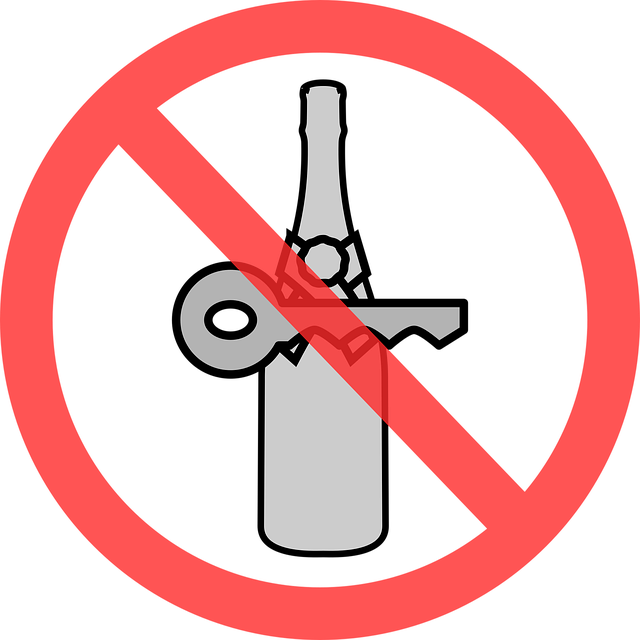In today's digital era, companies are implementing comprehensive Corporate DUI (Driving Under the Influence) policies and awareness workshops to prioritize employee safety regarding impaired driving. These initiatives educate staff about alcohol's effects on decision-making, fostering a culture of responsibility. By offering alternative transit solutions like carpool programs, active commuting incentives, and ride-sharing subsidies, organizations create safer commuting environments. Corporate DUI Awareness Workshops play a vital role in promoting safety by tailoring content to diverse backgrounds, using interactive scenarios, real-life stories, and open discussions. Compliance with transportation safety regulations is crucial, and these workshops help reduce accident risks and enhance a company's reputation as a champion of responsible practices. Globally, such initiatives have successfully lowered drunk driving incidents, transforming communities into safer, healthier, and more livable urban environments.
In today’s digital era, understanding corporate DUI policies is paramount for fostering a safe and responsible workplace. This article explores key aspects of alternative transit solutions, from the impact of alcohol on decision-making to successful case studies. We delve into best practices for organizing effective Corporate DUI Awareness Workshops, ensuring compliance, and promoting a culture of responsibility. By implementing these strategies, businesses can navigate the challenges of employee transportation safely and effectively.
- Understanding Corporate DUI Policies: A Foundation for Safety
- The Impact of Alcohol on Decision-Making in the Workplace
- Implementing Alternative Transit Solutions: Options for Employees
- Best Practices for Organizing Effective DUI Awareness Workshops
- Ensuring Compliance and Promoting a Culture of Responsibility
- Case Studies: Successful Alternative Transit Programs in Action
Understanding Corporate DUI Policies: A Foundation for Safety

In today’s digital era, companies are recognizing the importance of prioritizing employee safety, especially regarding impaired driving. Understanding and adhering to corporate DUI (Driving Under the Influence) policies is a fundamental step towards fostering a culture of responsibility and accountability. These policies often include comprehensive programs aimed at raising awareness about the perils of operating vehicles while under the influence of alcohol or drugs.
Corporate DUI Awareness Workshops play a pivotal role in educating employees about the potential consequences, not just for themselves but also for their colleagues and the public. Such workshops can be game-changers in empowering individuals to make informed decisions, ensuring that they and their coworkers arrive at their destinations safely without compromising anyone’s well-being.
The Impact of Alcohol on Decision-Making in the Workplace

In today’s workplace, understanding the impact of alcohol on decision-making is more crucial than ever. Alcohol consumption significantly alters cognitive function, impairing judgment and reaction time—effects that can be detrimental in professional settings. Employees under the influence may struggle with coordination, memory, and problem-solving skills, putting themselves and others at risk. This is especially concerning in industries where safety is paramount, such as construction or transportation.
Corporate DUI awareness workshops play a vital role in mitigating these risks. These educational programs aim to inform employees about the legal implications of driving under the influence, even off-hours. By highlighting the effects of alcohol on decision-making and offering strategies for responsible behavior, workshops foster a culture of safety and accountability within the workplace. This proactive approach not only reduces the chances of DUI incidents but also promotes a healthier, more aware workforce.
Implementing Alternative Transit Solutions: Options for Employees

Implementing alternative transit solutions is a strategic move for companies aiming to enhance employee safety and reduce corporate DUI (driving under the influence) incidents. With traditional commuting methods often associated with risks, organizations are exploring innovative ways to encourage safer travel options. One effective approach is offering a range of transportation alternatives tailored to employees’ needs. This can include dedicated carpool programs that facilitate safe ridesharing among colleagues, fostering a sense of community and accountability.
Additionally, many companies are embracing active commuting by promoting walking, cycling, or even electric scooter usage through incentives and dedicated infrastructure. These options not only reduce the risk of impaired driving but also contribute to a healthier workforce. Furthermore, providing access to public transportation subsidies or partnering with ride-sharing services ensures that employees have diverse choices while prioritizing their well-being. Such initiatives significantly lower the chances of DUI incidents and create a culture of responsible commuting among the corporate community.
Best Practices for Organizing Effective DUI Awareness Workshops

To organize effective Corporate DUI Awareness Workshops, begin by tailoring content to your audience’s needs—employees from diverse backgrounds and roles will have varying levels of understanding about drunk driving risks. Incorporate interactive elements like scenarios and role-playing exercises to promote active learning. Ensure these workshops are conducted regularly, not just during training sessions, to reinforce messages consistently.
Use compelling real-life stories and statistics to illustrate the devastating consequences of DUI incidents. Facilitate open discussions to address any misconceptions or taboos surrounding alcohol consumption and driving. Encourage participants to share personal experiences, if comfortable, to create a supportive atmosphere. Finally, offer post-workshop resources and support for individuals who may need additional help or information.
Ensuring Compliance and Promoting a Culture of Responsibility

Ensuring compliance with transportation safety regulations is paramount for any organization, especially those managing alternative transit options. Regular and comprehensive training programs, like Corporate DUI Awareness Workshops, play a pivotal role in cultivating a culture of responsibility among employees. These workshops educate staff on the severe implications of impaired driving, not just for individual safety but also for the well-being of fellow passengers and the public at large.
By integrating such initiatives into their operations, companies can foster a sense of accountability where every employee understands their role in maintaining a safe transit environment. This proactive approach to safety not only reduces the risk of accidents but also enhances the overall reputation of the organization, demonstrating its commitment to responsible transportation practices.
Case Studies: Successful Alternative Transit Programs in Action

Successful Alternative transit programs have been transforming communities worldwide, offering safer and more sustainable transportation options. One notable example is the implementation of Corporate DUI Awareness Workshops in major urban centers. These workshops not only educate employees on responsible drinking but also promote the use of designated drivers, ride-sharing services, and public transit alternatives. By fostering a culture of accountability, these initiatives have significantly reduced drunk driving incidents among corporate employees, leading to safer streets and a positive impact on local communities.
Additionally, many cities have successfully integrated innovative solutions like bike-sharing programs, electric scooter networks, and improved pedestrian walkways. For instance, Copenhagen’s comprehensive cycling infrastructure and public transport integration have made it one of the world’s most walkable and bike-friendly cities. These case studies demonstrate that through strategic planning, community engagement, and the adoption of new technologies, alternative transit options can thrive, contributing to safer, healthier, and more livable urban environments.
In conclusion, fostering a culture of safety and accountability regarding alcohol consumption in the corporate world is paramount. By implementing alternative transit options, such as designated drivers programs and ride-sharing initiatives, companies can significantly reduce the risk of drunk driving incidents. Combined with comprehensive DUI awareness workshops and strict compliance measures, these strategies create an environment where employees prioritize safety over risks. Understanding the impact of alcohol on decision-making in the workplace is a critical step towards achieving this goal, leading to more responsible choices and a safer atmosphere for all.






